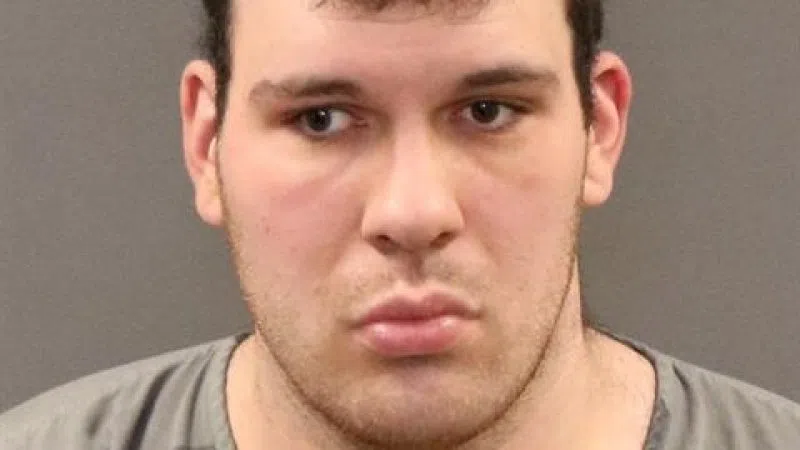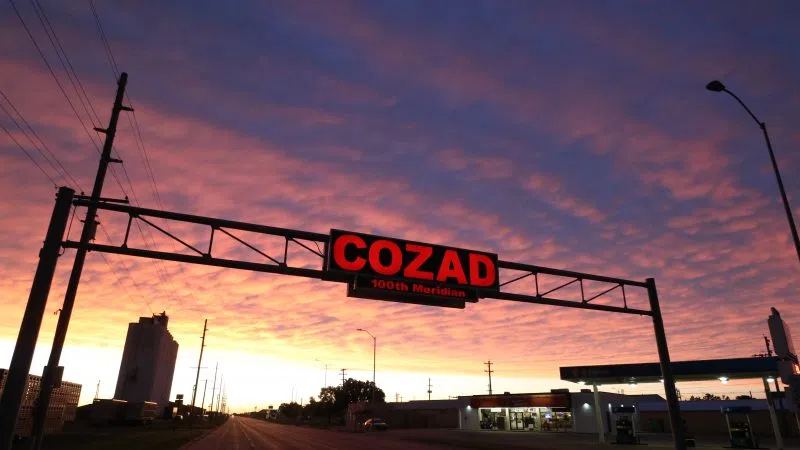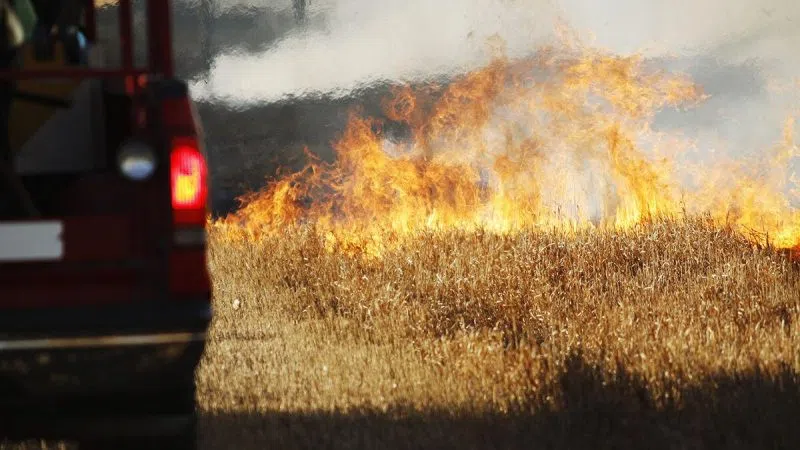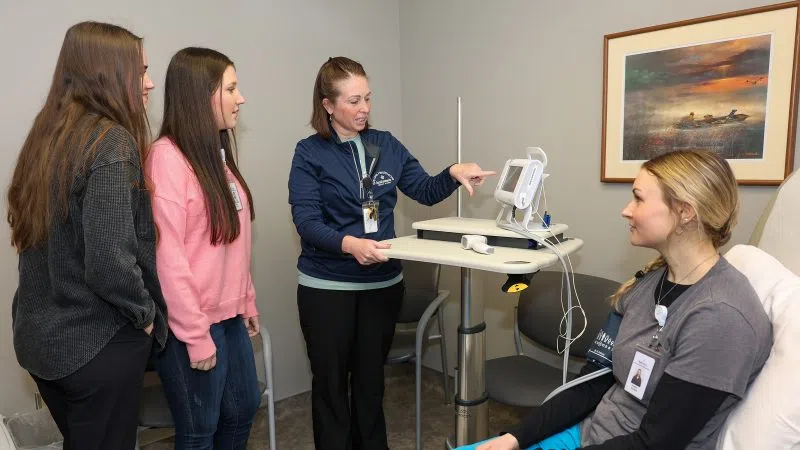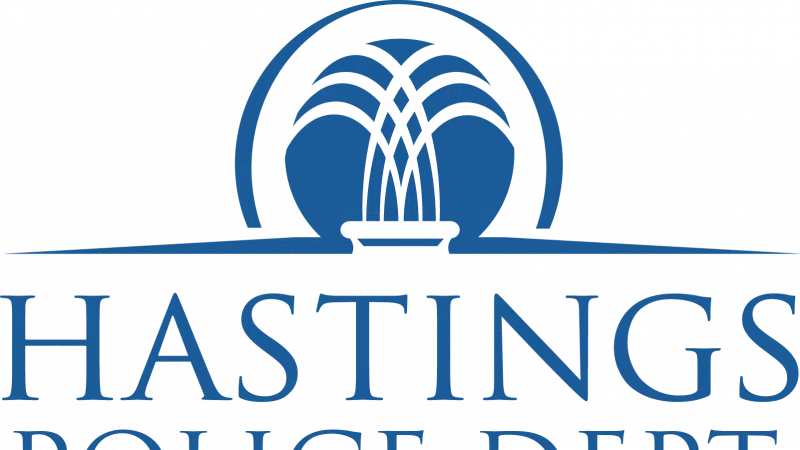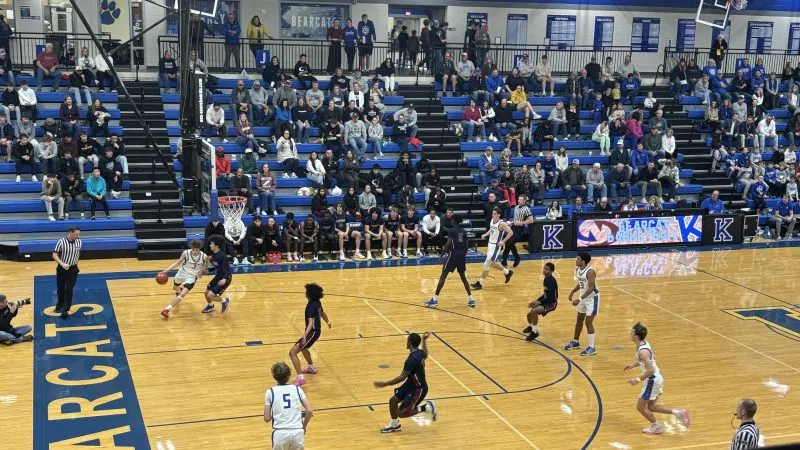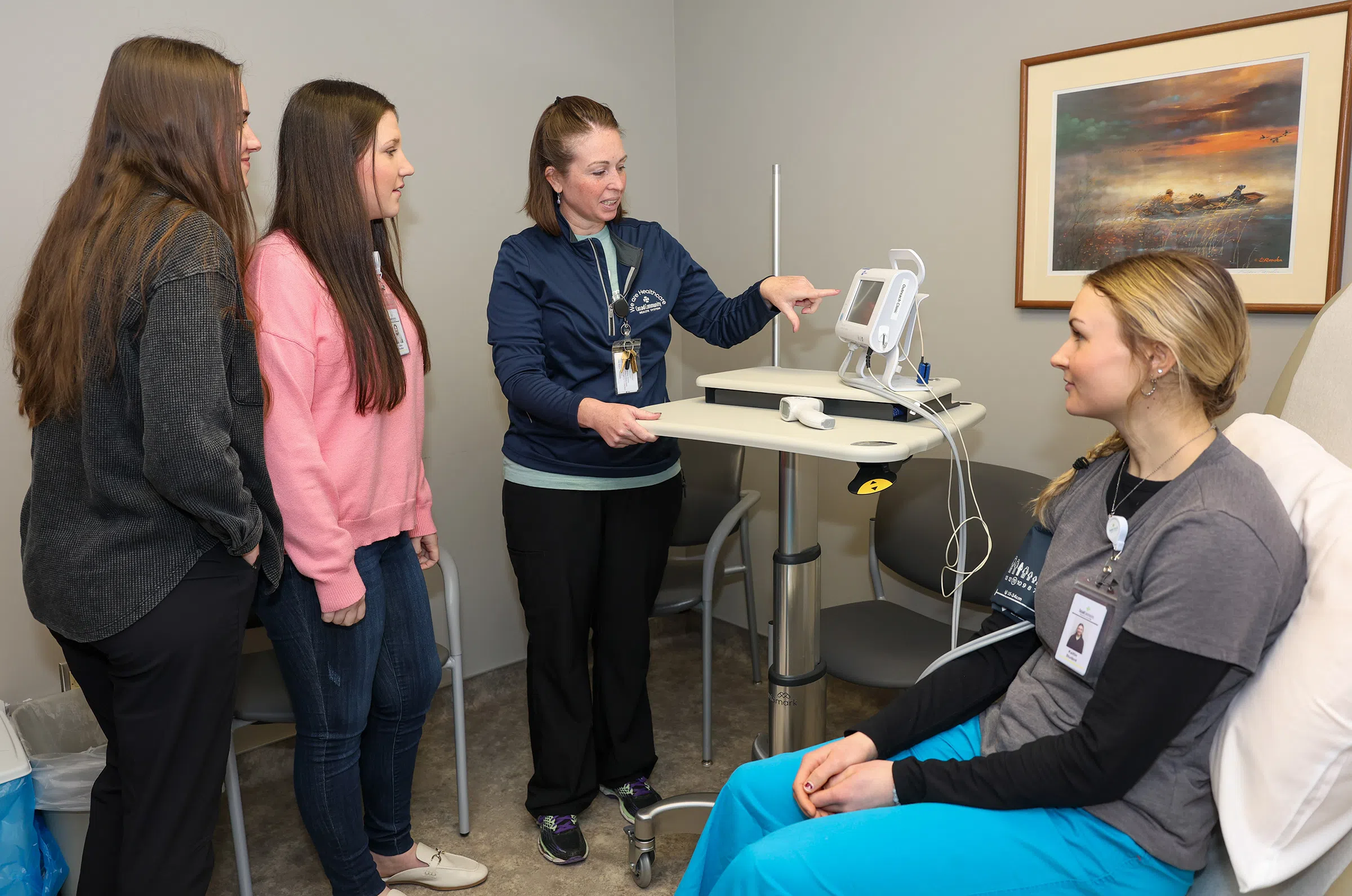
UNK health science students learn about Cozad Community Specialty Clinic during last week’s visit. They spent four days in Cozad through the Rural Immersion Program. (Photo by Erika Pritchard, UNK Communications)
COZAD – Robert Dyer never attended the University of Nebraska at Kearney.
He wasn’t part of the school’s Rural Immersion Program.
But he understands its value as well as anybody.
“I can be a perfect example of what a program like this can do,” he said.
A Hyannis native, Dyer earned a bachelor’s degree from Wayne State College before enrolling in the physical therapy program at the
University of Nebraska Medical Center in Omaha. As a physical therapy student, he completed a clinical rotation in Cozad.
“I was only here for two weeks on a student affiliation,” he explained, “but I had a great experience. I liked the community. I liked the hospital. And I liked the people.”
That experience led directly to his decision to accept a position at Cozad Community Health System in 2002.
Now serving as CEO, Dyer views the Rural Immersion Program as an important recruitment tool – an opportunity to connect with health science students early in their college careers and show them “all the good things happening in rural health care across the state of Nebraska.”
“There’s a need for health care professionals all across America, whether you’re in a big city or a smaller community,” Dyer said. “That’s why we have to work hard to try to bring back all of the talented individuals who are born and raised in small communities. There are certainly studies that show if you can give people training and exposure in a rural community, they’re more apt to come back to that community to work long-term.”
FIRSTHAND EXPERIENCE
Cozad Community Health System hosted three of these future health care professionals last week. UNK students Genesee Knackstedt, Eliana Livingston and Katie Cook spent four days there through the Rural Immersion Program, allowing them to learn more about rural health care and see firsthand the impact they can have in these communities.
“The Rural Immersion Program aims to provide our students with a valuable experience of life as a rural health care provider within the hospital and community,” said Julie Calahan, engagement and retention coordinator with UNK Health Sciences. “This program is far more than just networking and exploring – it is about expanding rural health care awareness and creating long-term connections in our rural communities.”
In Cozad, the UNK students were exposed to every aspect of rural health care, including administration, finances, human resources and materials management. They spent time in a variety of departments – emergency care, radiology, laboratory services, physical therapy and cardiac rehab, to name a few – and also visited the medical clinic, specialty clinic and assisted living.
Knackstedt, a sophomore from nearby Elwood, signed up for the program because she wanted a more in-depth look at rural health care as a whole. She started shadowing at Lexington Regional Health Center during high school and participated in UNK’s Health Science Explorers program as a freshman. Those experiences allowed her to discover a passion for physical therapy.
The connections she made through the Rural Immersion Program reinforced her plan to practice in central Nebraska after professional school.
“I definitely want to remain in this area,” Knackstedt said. “I live in a rural town, so I like the environment and the community that you have around you. You have that additional support, and you also get to make an impact in the lives of the people you know.”
That’s a big selling point for Dyer, who completed his Doctor of Physical Therapy degree from UNMC in 2005 and currently assists with the physical therapy program that’s now offered in Kearney.
“You have the opportunity to make that big, personal impact,” he said of rural health care. “You become part of that community. The people you see in the grocery store or the people you see at ballgames, those are the people who are your patients. It’s that community connectedness that makes it important.”
WORKFORCE DEVELOPMENT
There are a variety of ways to make a difference, too. That’s something Cook appreciates.
“If you go to a bigger hospital, you might be specializing in just one thing,” she said. “But here in a rural community, you get to see everything. You get to see different aspects of health care and treat a broad range of patients.”
Originally from Elsie, a tiny town in southwest Nebraska, Cook is pursuing a nursing career because she loves caring for people.
“I think I got that from my grandma. She was probably the sweetest lady you’d ever meet,” the UNK student said with a smile.
Cook participated in the Rural Immersion Program to gain more knowledge and hands-on experience in the field while boosting her application for nursing school. She recently accepted a position as a certified nursing assistant at a local nursing home, and she hopes to begin nursing school at UNMC in Kearney this fall.
Eventually, she wants to become a nurse practitioner.
“I used to think I didn’t want to be in a small town, but after this Immersion Program, I think I might want to come back to a rural area,” Cook said.
Ten UNK students have participated in the Rural Immersion Program since it was launched in January 2024. Hospitals in McCook, Sidney and Cozad have hosted students so far, with York and Albion scheduled to join the program this summer.
UNK Health Sciences has a total of 14 hospital partners, with the potential to add three more in the coming months.
“These partnerships play a key role in helping students decide where they want to live and work in the future,” Calahan said. “This is why we are laying the groundwork through the Rural Immersion Program to connect students with rural communities. We want to be part of the solution to the current workforce shortage so we can all continue to count on quality, accessible health care close to home.”


